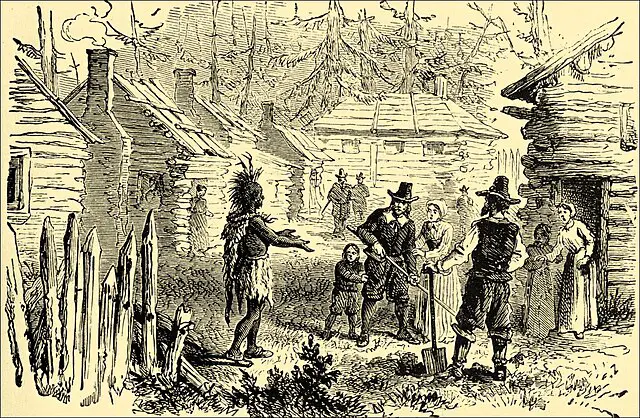Imagine it’s 1621. You’re a starving, half-frozen English settler in a strange new world. You’ve just survived a brutal winter where half your colony didn’t. Suddenly, out of the forest walks a man, not English, not Dutch, but clearly Native, and he greets you. In perfect English. Then he asks, casually, if you have any beer.
Wait. What?
This isn’t historical fiction. This happened. And the man’s name was Samoset.
Who Was Samoset, and How Did He Know English?
Most of what we know about Samoset comes from brief references in settler records. But what a first impression he made.
He was an Abenaki chief from what’s now Maine. He’d had contact with English fishermen along the coast for years, and apparently, he picked up some of their language, enough to shock the buckle shoes off the Plymouth colonists when he greeted them with, “Welcome, Englishmen.”
It was March 16, 1621. That moment, simple as it sounds, may have saved the entire colony.
The Beer Request Heard Around the Colony
Here’s where it gets delightfully weird. After greeting the settlers, Samoset reportedly asked, “Do you have any beer?”
At first glance, it sounds like a punchline. But consider this: beer wasn’t just a drink in 17th-century Europe. It was safer than water. It was nutrition. It was comfort. The Pilgrims had sailed with barrels of it.
And to Samoset, who had encountered English sailors before, beer was the drink of hospitality. So of course he asked for one. Imagine being that chill in the middle of a diplomatic first contact.
Beyond the Beer: What Samoset Did Next
Samoset didn’t just say hi and bounce. He stayed the night, despite the settlers being so wary, they didn’t let him keep his knife. Still, he shared valuable information. He told them about the land, the local tribes, and most importantly, introduced them to someone who would change everything: Tisquantum.
You probably know Tisquantum by his other name, Squanto. He’d spent time in Europe, spoke even better English than Samoset, and taught the Pilgrims how to grow corn, fish, and survive.
But without Samoset, Squanto might never have entered the picture.
The Real Legacy of a Simple Greeting
We romanticize first encounters. But this one, simple, human, even humorous—is a reminder that history turns on small, strange moments.
A man walking out of the woods, asking for beer.
That request might’ve seemed odd. But it showed the settlers he came in peace. It gave them hope. And it opened the door to an alliance that let them survive long enough to build what became New England.
Why This Still Matters
Samoset doesn’t get much credit in history books. His story gets overshadowed by Squanto’s, by Thanksgiving myths, by colonial dramas that followed.
But maybe we should pause and think about how powerful it is to bridge cultures with language. With humor. With hospitality.
And yes, with beer.
Sources:
1. Pilgrim Hall Museum
samoste
2. Smithsonian Magazine
3. MayflowerHistory.com

